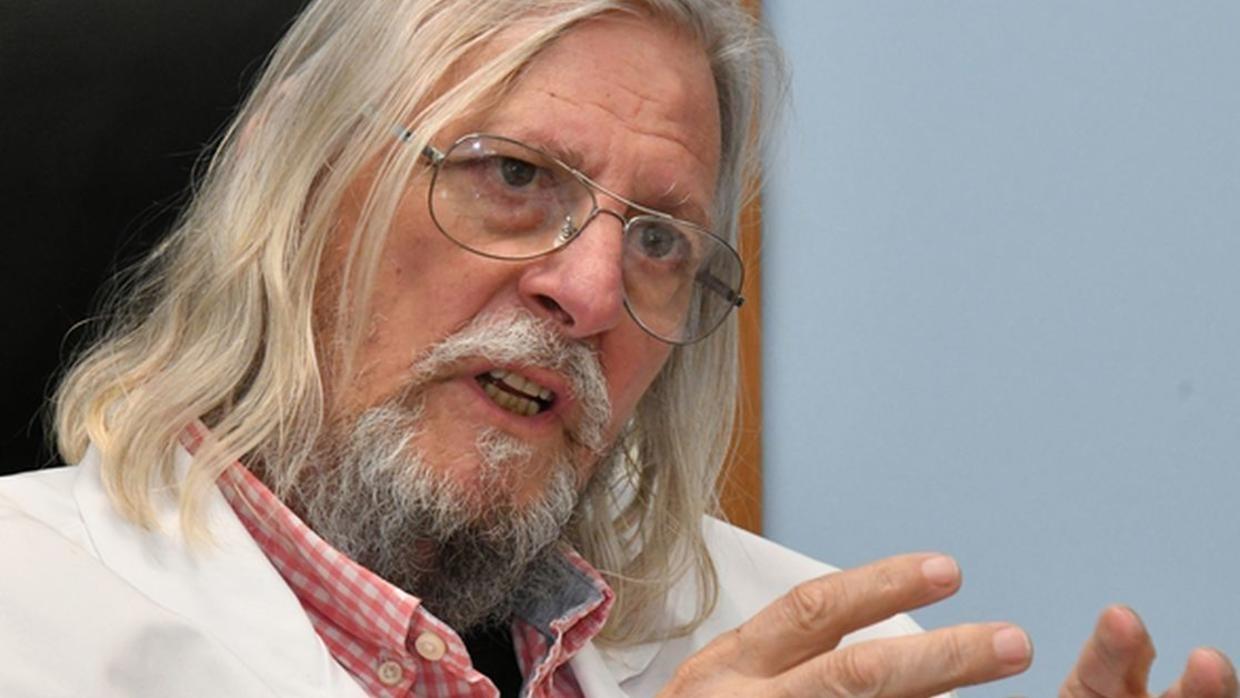The Impact of Dr. Peter McCullough on COVID-19 Treatment Protocols and Public Health Discourse
#### Introduction to Dr. Peter McCulloughDr. Peter McCullough, a prominent cardiologist and epidemiologist, has gained significant attention for his views o……
#### Introduction to Dr. Peter McCullough
Dr. Peter McCullough, a prominent cardiologist and epidemiologist, has gained significant attention for his views on COVID-19 treatment and prevention strategies. His extensive background in medicine, combined with his outspoken opinions, has made him a controversial figure in the public health community. This article explores the contributions of Dr. Peter McCullough to the ongoing discourse surrounding COVID-19, examining his treatment protocols, advocacy for early intervention, and the implications of his views on public health policy.
#### Dr. Peter McCullough's Treatment Protocols
Dr. Peter McCullough has been a strong advocate for early treatment of COVID-19, emphasizing the importance of a multi-drug approach. He argues that early intervention can significantly reduce hospitalization rates and improve outcomes for patients diagnosed with the virus. His treatment protocols often include a combination of medications such as hydroxychloroquine, ivermectin, and various anti-inflammatory drugs. This approach has sparked considerable debate within the medical community, with many healthcare professionals questioning the efficacy and safety of these treatments.

Despite the controversy, Dr. McCullough's protocols have gained a following among certain segments of the population, particularly those who are skeptical of conventional COVID-19 treatments and vaccines. His emphasis on patient autonomy and informed consent resonates with individuals who feel marginalized by mainstream public health messaging.
#### Advocacy for Early Intervention
One of the hallmarks of Dr. Peter McCullough's approach is his staunch advocacy for early intervention in COVID-19 cases. He believes that timely treatment can prevent the progression of the disease and reduce the burden on healthcare systems. This perspective challenges the prevailing narrative that focuses primarily on vaccination as the primary means of controlling the pandemic.
Dr. McCullough's advocacy extends beyond treatment protocols; he has also called for increased awareness of the importance of early diagnosis and intervention among healthcare providers. He argues that many patients are not receiving timely care due to a lack of awareness or understanding of available treatment options. This has led to calls for more comprehensive training for healthcare professionals in recognizing and managing COVID-19 symptoms early in the course of the disease.

#### Implications for Public Health Policy
The views of Dr. Peter McCullough have significant implications for public health policy. His advocacy for early treatment and skepticism towards vaccine mandates and lockdown measures challenge the strategies employed by many health authorities. This has led to a polarized debate within society, with some viewing Dr. McCullough as a hero advocating for patient rights, while others see him as a dangerous figure undermining public health efforts.
The impact of Dr. McCullough's ideas is evident in the growing movement of individuals who are seeking alternative treatments and questioning the safety and efficacy of vaccines. This shift in public perception has prompted health officials to reassess their communication strategies and consider the broader implications of dissenting voices in the medical community.
#### Conclusion

Dr. Peter McCullough's influence on COVID-19 treatment and public health discourse cannot be understated. His advocacy for early intervention and alternative treatment protocols has sparked significant debate and has led to a reevaluation of traditional approaches to managing the pandemic. As the public health landscape continues to evolve, the contributions of figures like Dr. McCullough will likely remain a focal point of discussion, highlighting the complex interplay between medical expertise, public perception, and policy-making in times of crisis.